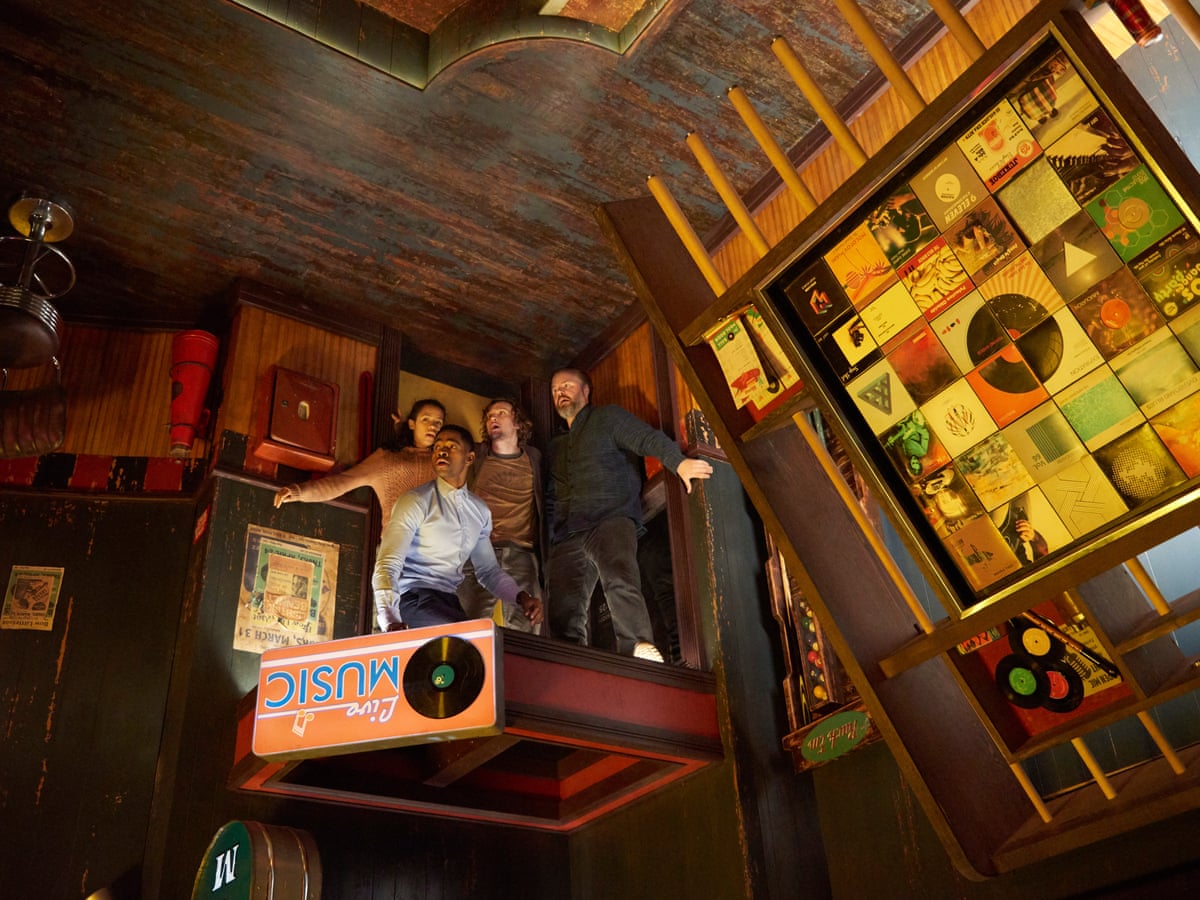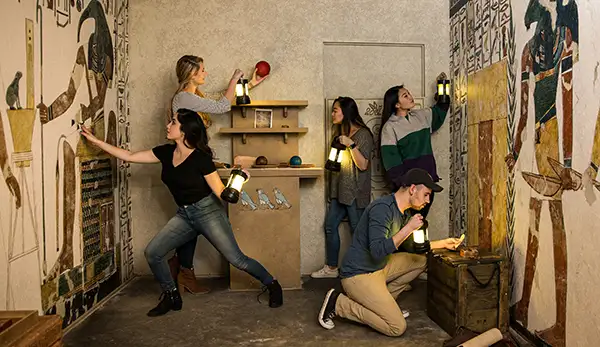Escape Room Minneapolis Mall of America-- Immersive and Fun
Escape Room Minneapolis Mall of America-- Immersive and Fun
Blog Article
Group Techniques: Exactly How to Collaborate Efficiently in an Escape Space
Navigating the complexities of a getaway space necessitates greater than simple interest; it needs a well-coordinated method grounded in clear interaction, strategic duty assignments, and skilled time management. Teams should actively listen to each participant's insights, designate roles that line up with private strengths, and preserve routine check-ins to guarantee emphasis and stop redundancy. By fostering an environment that values cohesion and versatility, groups can significantly enhance their effectiveness and success rates. The nuances of these methods can change the experience, but how precisely can they be executed to maximize the potential for success?
Establish Clear Communication

To promote clear communication, it is crucial to designate a central point of call for details circulation. Short, focused updates from each group participant can maintain the group notified without overwhelming them with details.

Assign Roles Purposefully
While clear interaction establishes the structure for efficient teamwork, designating duties tactically guarantees that each group member's toughness are made use of successfully. In a retreat room situation, the time-sensitive and complex nature of difficulties demands a well-organized method to task delegation. By recognizing and leveraging private competencies, teams can maximize their analytical capacities and boost general efficiency.
First, evaluate the distinct abilities and characteristics of each individual. For instance, someone with an eager eye for detail may master finding covert objects, while a sensible thinker might be much better suited to resolving problems - best escape room. It's equally vital to have a leader who can manage progress, take care of the timeline, and make crucial phone calls when necessary. This duty frequently requires solid business and interpersonal skills.
2nd, ensure that roles are adaptable and versatile. As brand-new obstacles emerge, the team has to be able to pivot, reapportioning tasks as called for. This adaptability helps maintain momentum and avoids traffic jams that can occur as a result of inflexible function projects.
Inevitably, a strategic approach to duty project not only optimizes the staminas of each staff member but also fosters a natural atmosphere, driving the group in the direction of a successful getaway.
Use Diverse Abilities
Acknowledging and using the diverse abilities within your group can dramatically elevate your performance in a retreat room. Each staff member brings special staminas to the table, and properly leveraging these abilities can expedite analytic and improve total effectiveness. A group member with strong analytical abilities may excel at figuring out complicated codes or patterns, while one more with eager observational capacities may rapidly find concealed clues that others could overlook.
Encourage group members to articulate their understandings and ideas without delay, making sure that all potential solutions are considered. In addition, assigning tasks that line up with each member's strengths can prevent traffic jams and ensure that development is continuous.
Furthermore, diversity in abilities frequently equates to variety in assuming see post designs, which is important in a getaway space setting. While some obstacles may call for sensible thinking and precision, others may take advantage of imaginative and association of ideas. By recognizing and leveraging this diversity, groups can address a broader variety of challenges much more efficiently, therefore enhancing their possibilities of a successful retreat.
Manage Time Properly

First, allot preliminary mins for a quick survey of the room. Recognize noticeable problems and divide jobs based upon staff member' staminas, making sure that no one is still. Establish interior time checkpoints Your Domain Name to review development occasionally; as an example, purpose to have half the puzzles solved by the mid-point of the game. This practice can help maintain the group concentrated and prevent time from sliding away undetected.
Furthermore, stay clear of tunnel vision. If a problem is taking too long, revolve group members or carry on to one more difficulty, returning later with fresh perspectives. Communication is extremely important-- keep everybody updated on solved problems and continuing to be jobs to avoid redundant efforts.
Last but not least, use any type of tips or ideas moderately yet purposefully - best escape room. Understanding when to request assistance can conserve useful time. By you can find out more sticking to these time administration concepts, groups can significantly improve their chances of a successful and satisfying retreat room experience
Debrief and Reflect
Representation is an important aspect of team advancement and renovation in the context of escape areas. As soon as the challenge is completed, whether effectively or not, it is critical for the team to participate in an organized debriefing session. This procedure enables employee to evaluate their efficiency, recognize staminas, and pinpoint locations for enhancement.
Begin the debrief by discussing what worked out. Highlight certain circumstances of effective communication, analytical, and collaboration. Identifying these favorable habits reinforces them and motivates their rep in future challenges.
Following, resolve the barriers experienced. Discuss minutes of confusion, miscommunication, or inadequate approaches. Motivate an open and constructive dialogue where team members can share their perspectives without worry of objection. This promotes a culture of continual enhancement and discovering.
Verdict
Finally, successful collaboration in an escape space is based upon clear interaction, tactical duty assignments, the efficient application of varied skills, and efficient time monitoring. Routine check-ins and structured debriefings are vital for preserving focus and cultivating constant improvement. By producing a natural and adaptive team environment, the likelihood of successfully solving puzzles and achieving the goal of escaping the space is significantly enhanced. This approach not just makes sure success however likewise advertises cumulative growth and understanding.
Report this page